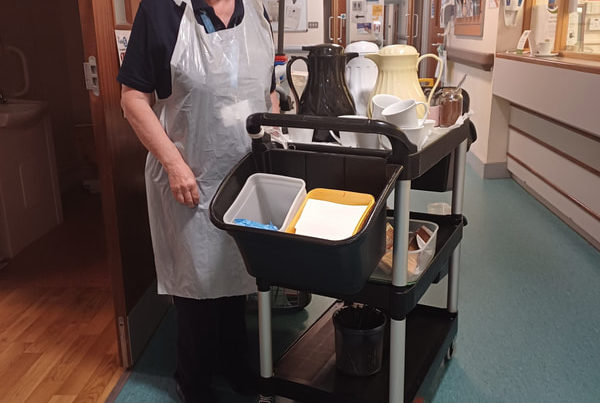
Health & Social Care Moray and parent body the Moray Integration Joint Board are urging people to act now to protect their future choices by getting their Power of Attorney in place.
A Power of Attorney (PoA) lets you plan what you want another person to do for you in the future, should you become incapable of making decisions about your own affairs.
Moray is joining health and social care partnerships across Scotland supporting today’s (Thursday 21 November) National Power of Attorney campaign to highlight the importance of arranging the legal document.
Judith Proctor, Chief Officer of Health & Social Care Moray (HSCM), said frontline staff continue to help get the message out to Moray residents.
“It’s never too early to have the conversation with family or friends and we encourage people to get their PoA in place to ensure their wishes are carried out. You can appoint anyone over the age of 16 as your attorney but it should be someone you trust, someone who knows what your wishes and feelings are,” she said.
Dennis Robertson, Vice-Chair of the Moray Integration Joint Board, said: “A lot of people think that setting up a PoA is just for older people, but anyone can lose capacity temporarily or permanently as a result of serious illness, accident, injury, mental health issue or dementia diagnosis.
“Appointing an attorney doesn’t take away your rights – it’s a straightforward document which acts like an insurance policy to safeguard your own wishes during your lifetime.”
Every year, thousands of people face added distress and unnecessary complications because a PoA is not in place. Many wrongly assume that because they are next of kin or close relatives, they can direct the affairs of a loved one who can no longer make decisions for themselves. Families can face a long and stressful legal process to obtain guardianship at an already difficult time.
The only officially recognised way to ensure that a trusted family member or friend is legally empowered to oversee their loved one’s affairs is to have a PoA completed and registered with the Office of the Public Guardian (Scotland) ahead of time.
The majority of people make a combined PoA to allow decisions to be taken about their personal welfare and financial affairs, such as dealing with bank accounts, pension, payments and investments, and deciding where the person should live.
Most solicitors can help you to draft a PoA and will give you legal advice. If you don’t want to use a solicitor, the Office of Public Guardian (Scotland) has useful information on its website at www.publicguardian-scotland.gov.uk/power-of-attorney. A registration fee applies and there are exemptions available for people who receive certain benefits.



